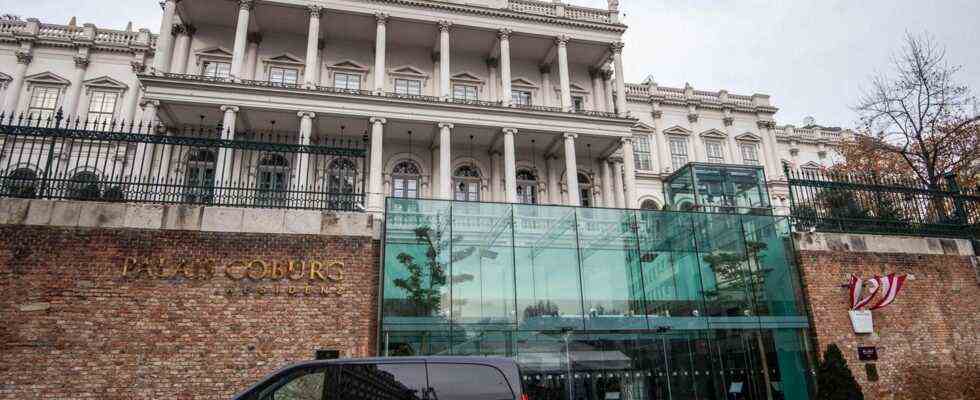Agreement with Iran
Atmosphere of mistrust: the nuclear deal is still a long way off
Behind the noble barrel of the Palais Coburg in Vienna, the nuclear deal with Iran is to be saved.
© Vladimir Simicek / AFP
After a six-month break, talks about the Iranian nuclear deal are starting again. Representatives of Tehran are willing to come to an agreement with the contracting parties, but there will be no direct negotiations with the USA, they emphasized.
Actually, all sides were satisfied with the laboriously forged deal. The West had assurances that Iran would not develop nuclear weapons, and with the lifting of the sanctions, Iran moved closer to the international community. At the same time, however, not everyone was satisfied. Because Iran continued to test its controversial missiles and later the Europeans failed to implement their promise to provide the Iranians with an option for international money transfers. In 2018, on May 8th, it was over again. After a good three years, then US President Donald Trump terminated the nuclear deal with Iran. Now at least the EU and Iran are trying to get closer to each other again.
Meeting with Iran in a luxury hotel
First of all, the representatives of Germany, France, Great Britain, Russia and China will “informally” meet the representatives of Iran on Monday in the Hotel Palais Coburg – a luxury hotel in Vienna with the “wine archive” in the cellar, from around 600 euros per night. The Americans are initially only indirectly involved with their special envoy to Iran. Tehran diplomats ruled out direct negotiations with the USA anyway.
The talks, that much is already certain, will take place in an atmosphere of mistrust. The change in power in Tehran alone is likely to make it rather difficult to save the nuclear deal. Because so far the pragmatic President Hassan Ruhani sat on the Iranian side, who has meanwhile handed over his office to the arch-conservative Ebrahim Raisi.
Where freedom is lived out in secret
11 images
In addition, after the withdrawal of the Americans, the Islamic Republic pushed ahead with its nuclear program, contrary to what had been agreed, and put international nuclear inspectors under pressure. The sanctions revived by the US did serious damage to the Iranian economy. Nevertheless, it sometimes appeared as if the government in Tehran was willing to pay the high price for its nuclear program.
Before the talks were put on hold in June of this year, negotiators had come closer to finding a solution to persuade the US to lift sanctions and Iran to restrict its nuclear program again. But that was still at the time of Hassan Ruhani, whether the current government will accept the result of the negotiations so far is still completely open.
“Don’t think the West wants an agreement”
Iran’s chief negotiator did not look into his cards for the time being. “We are going into the new round of negotiations well prepared and very determined, and we will consistently enforce our demand for the lifting of the sanctions,” he said. But also: “We don’t believe that the West wants an agreement”. His US counterpart Robert Malley recently took a tougher pace in the event that Tehran does not give in.
The recent fruitless trip to Iran by the Director General of the International Atomic Energy Agency (IAEA), Rafael Grossi, is not exactly optimistic either. He had recently traveled to Tehran to talk about overseeing the implementation of the nuclear deal. The IAEA has been “seriously hindered” by Iran in this task since February 2021, as Grossi explained to the organization’s board of governors shortly after the trip to Tehran. The atomic authority accuses Iran, among other things, of disproportionate checks and harassment of its inspectors.
The IAEA recently announced that Iran had significantly increased its stocks of more highly enriched uranium than allowed in the past few months. According to its own information from the beginning of November, Iran has around 25 kilograms of uranium enriched to 60 percent. In doing so, he has strayed far from the provisions of the nuclear agreement, which grants the country a quantity of uranium limited to 300 kilograms with an enrichment of 3.67 percent.
The aim of the talks to save the agreement in order to prevent Iran from developing nuclear weapons seems to lie in the distant future.

